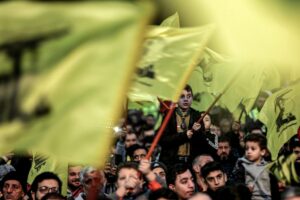What to take and what to leave in case of war? Shall I take my passport? Even if I wanted to leave, I couldn’t; the only border is with Syria. I would be stopped and grilled by border control when I return to the UK. In any case, I will not leave or evacuate like foreigners, leaving the country and my family just because I have the luxury to do so. I kept the passport in Beirut and brought only my Lebanese ID, in case I needed it.
It was a few days after the attack that killed Shukr, the Hezbollah leader. Drums of war are everywhere, and the city is in panic. Discussions about whether Bekaa is safer than Beirut abound. Who can reason with Israel, anyway? We packed the house and left the doors half open in case there were big explosions, so there wouldn’t be too much pressure. Are we saying goodbye to the house? What if it gets hit? We are in a safe area — Israel won’t hit Ras Beirut, they say! But are there any safe areas in wars? Gaza tells us otherwise.
“Will there be a war?” a passenger in the service-taxi in Beirut asked. The driver immediately said, “What do you mean, will there be a war? There is already a war! I haven’t been to my village in the south all this year. Over thirty villages are leveled to the ground. Whole areas are burned. Is not that war, or do we call it war only when it is in Beirut? Is not the south part of this country?”
We left Beirut in less than twenty minutes even though it was noon, a road that usually takes no less than an hour. The roads were empty. Beirut suddenly looked beautiful, a city that has started to regain a bit of its life after a few years of terrible economic crisis. Buildings once hated now suddenly look beautiful, a sudden feeling of nostalgia for a city that no longer exists, a city that suddenly looks charming.
The Bekaa roads were full. Perhaps everyone left the city. Perhaps they also thought like us — wars are more bearable in smaller villages; they are harder in cities, even if we know that nowhere is safe.

